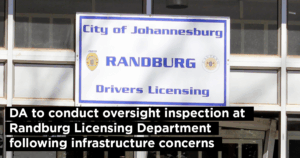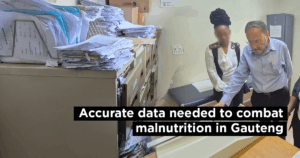I am most concerned by the devastating impact of load shedding on Gauteng’s public hospitals and clinics, including some serious incidents of generators not working.
Even though the Far East Rand Hospital has been exempted by the local municipality from loadshedding, the hospital generators had to kick in on Saturday after a fault at the local power station. On Sunday, however, one of the hospital’s two generators ran out of diesel at 9am and new diesel was only available two hours later.
At the Charlotte Maxeke Johannesburg Hospital, the head of internal medicine Professor Adam Mohammed has described the situation when power goes off as “playing Russian roulette with our patients.”
Rahima Moosa Mother and Child hospital has also been badly affected by the power cuts, as detailed by Dr Tim de Maayer in his anguished open letter in May this year.
In Kagiso on the West Rand, the Thusong clinic has been without power since Wednesday last week, with no diesel to work the generator. Nurses do their best to see patients in the dark or outside, but their equipment does not work without electricity.
There is no excuse for running out of diesel, and proper management is needed to ensure it is always available.
But the sad reality is that batteries and generators were not designed to cope with frequent load shedding, so the lives of patients are endangered when this occurs.
Hospitals cannot operate fully even when generators work as their power is only enough for emergency surgery.
It’s not just Eskom power cuts – Chris Hani Baragwanath Hospital has sometimes cancelled surgery because of power loss from cable theft.
This is all terribly stressful for hospital staff and patients.
Hospitals should be exempted from Eskom power cuts wherever possible, and generators should always be in working order to mitigate the effects of unreliable power supply.








